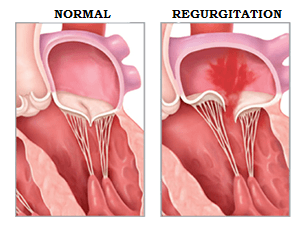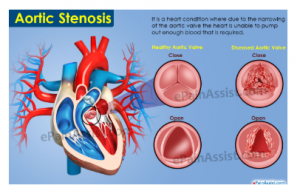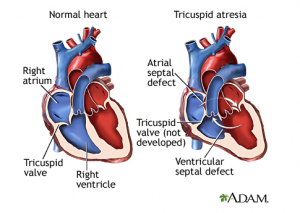What is a heart? How does it work? Does it ever take rest? Why is the center of our body? All these questions hinder us always. Well, it is a muscular organ that pumps blood through the circulatory system. It is the organ that keeps you alive. Our heart has four chambers that help in the circulation of blood. At the end of each chamber, there lie different valves in order to prevent backflow of blood and to maintain one-way blood flow through the heart. All the four heart valves, tricuspid, pulmonary, mitral, and aortic valves make sure that blood always flows freely in a forward direction and that there’s no backward leakage. Yet there are diseases that come along with it. Heart valve disease is one of them. This is where one or more of your heart valves don’t work well. It is when the valves don’t open or close properly resulting in disrupted blood flow through your heart. Heart valve disease is further categorized into 3:
- Regurgitation: This is the state where the valves do not close tightly and firmly resulting in leakage of blood or backflow of blood into the chambers.

- Stenosis: This occurs when the flaps of the heart get rigid or thicken. This averts the heart to open properly resulting in an inadequate amount of blood flow in through the valves.

- Atresia: It is the state where your heart valves are deprived of an opening for the blood to pass.

Causes of Heart Valve disease include high blood pressure, heart failure, infections, high cholesterol, diabetes, etc.
There are many causes and symptoms of this disease however they aren’t recognized until you age. These symptoms include:
- Abnormal sounds of the heart.
- Fatigue
- Dizziness
- Fainting
- Abdomenal bloating
- Short breaths
- Irregular hear beat
- Swelling in legs, ankles, feet neck, etc.
Our heart is the center of our body, connecting each and every organ. Heart valve disease not only affect the heart but the entire organism. This is because this disease can lead to blood clots, strokes, not enough blood to flow etc all procedding to lack of oxygen supply in the body and affecting all the organs.
Treatment of this disease depends on the valve(s) that are affected and the seriousness of the disease. In earlier stages medications for lower blood pressure, cholesterol, diabetes, clot-preventing can be given. In severe cases, surgeries or transplantation of valves are suggested. Technical and medical advancements particulary transpantsation of the specific valves can help demolish the disease and otherwise in other cases where less damage is done a the repair of heart valves can also be an option. However, in major cases, no treatment is that efficient. In the end heart valve disease can lead to complications like heart failure, strokes, blood clots or even deaths.
Even when these transplantation can help destroy the illness, it have many social, ethical, political and cultural effects. Talking about the social, ethical, religions issues, the misconceptions lie in our minds. There are so many religions that do not favour transplantation having the perception that it might disfigure the donors body. Apart from that these minority groups believe the recipient will not be accepted by the society and will not remain pure as the organ is transplated from a dead body. They also belive that disecting a body will not give peace to the soul. Throwing light on the economical issues, organ donation and transplantation can be quite expensive and holds immense risk.
As a whole heart valve disease is quite risky and the result of it does not lie in our hands. It is quite rare of life saviour after being diagnoses and treated for the illness. However technical advances might help destroy the disease. It is a war between life and death.